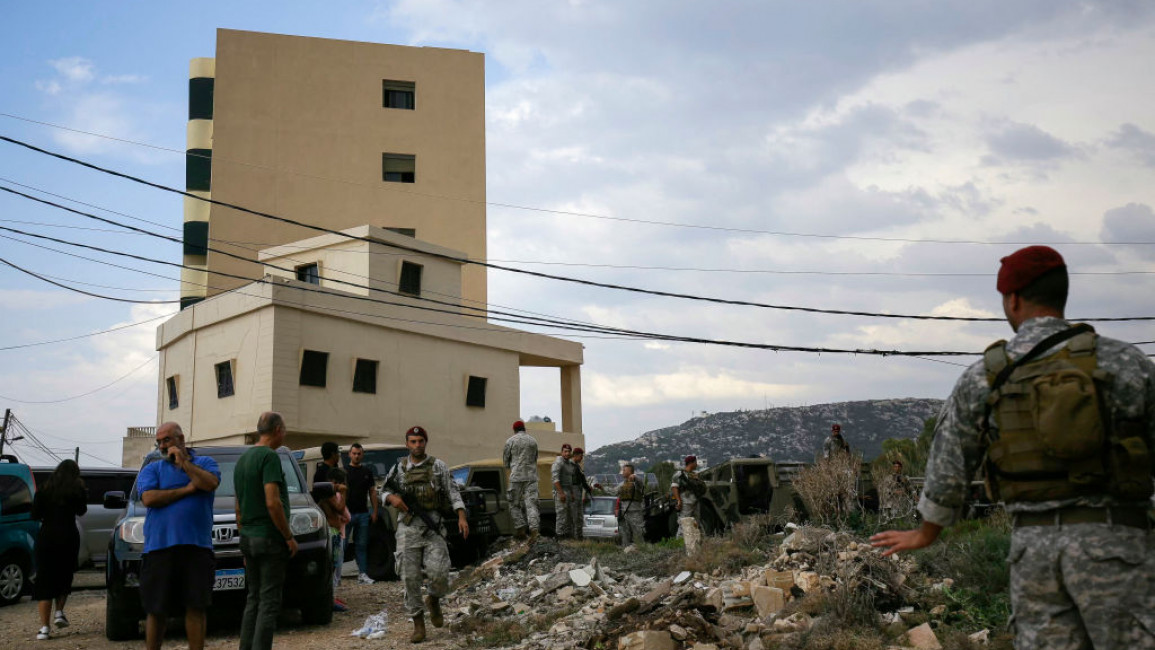Did UNIFIL’s German-led Maritime Task Force know of Israel's commando raid on Batroun?
The follow-up from Israel's unprecedented naval commando raid on Friday, in which Lebanese marine student Imad Amhaz was abducted from his residence in north Lebanon's coastal town of Batroun, is raising questions.
Most prominent is whether the German-led Maritime Task Force (MTF) – part of the UN peacekeeping mission in Lebanon (UNIFIL) – was aware of the covert Israeli operation underway and allowed such an egregious breach of Lebanon's sovereignty without alerting the Lebanese authorities.
Friday's incident saw the elite Israeli naval unit Shayetet 13 use speedboats to reach the coastal town, and raid the residential block housing civilian captain and student Amhaz, before abducting him in an operation which marks the deepest known incursion yet by Israeli forces into Lebanese territory since Israel massively expanded its war into Lebanon in late September.
According to Lebanon's former government coordinator for UNIFIL, Brigadier General Mounir Shehadeh, this "was clearly a hostile act by Israel, in plain view of the international forces, led by Germany which is responsible for the naval team assigned to monitor Lebanese territorial waters."
UNIFIL's responsibility for alerting authorities to Israeli sea landing
Shehadeh, who spoke to Al-Araby Al-Jadeed, The New Arab's Arabic-language sister edition, said "the UN peacekeeping forces, whose role is to enforce Resolution 1701 and monitor Lebanon's territorial waters, should have informed the Lebanese authorities" of what was underway.
"They undoubtedly saw the arrival of the warship and the disembarkation of soldiers," he added.
In his view, they bore "significant responsibility" for not informing the Lebanese authorities about the unfolding operation.
UNIFIL's Maritime Task Force (MTF), which supports the Lebanese navy in monitoring the entire length of Lebanon's coastline has been under German command since 2021.
While UNIFIL denied any involvement in the kidnap, Shehadeh claimed they should have informed the Lebanese government as to the presence of an Israeli warship off the coast of north Lebanon, which could not have been missed, in his view.
He explains that a warship must have anchored close to Batroun's coast, as the inflatable speedboats used in the operation could not have covered the 150 km between Haifa and Batroun.
"What actually [must have] happened was that an Israeli warship, stationed at Haifa Port, where the Shayetet 13 unit is based, moved out to sea.
"When it reached Batroun's coastal waters it stopped, and about 25 soldiers disembarked, crossed the remaining distance by sea to Batroun's shore, and executed the operation."
Israel's Shayetet 13, which carried out the abduction, is a naval unit specialising in sea-to-land incursions, maritime intelligence gathering and maritime hostage rescue.
Shehadeh highlighted that Germany, which led the MTF currently, bore responsibility, given its history of supporting Israel.
"About a month ago, we all remember how a German warship operating under the UNIFIL task force intercepted a resistance drone heading towards Israel".
He pointed out that this intervention signalled Germany's non-neutrality when it came to the conflict between Israel and "resistance forces" – emphasising that Germany "had no right to intercept".
"Its role should have been to record the violation and report it to the international forces," he added, as it was "prohibited from using force except for in self-defence" under the terms of Chapter 6 of the UN Charter, which it was supposed to abide by.
Lebanon's caretaker Prime Minister Najib Mikati called on Saturday for an immediate probe into Amhaz's abduction and instructed his Ministry of Foreign Affairs to submit an urgent complaint before the UN Security Council.
Mikati's office said the Lebanese army and UNIFIL were conducting investigations into the raid, and that he had called for "expedited" results "to uncover the details of this case and to address the situation appropriately."
Shehadah said the incident highlighted how Israel was free to violate Lebanese airspace, waters and land "without deterrence".
While Israel has claimed Amhaz to be a senior Hezbollah official, the Lebanese group have neither confirmed nor denied this. However, Lebanon's Minister of Public Works and Transport Ali Hamieh said the abducted man was a civilian naval officer, studying at the Maritime Sciences and Technology Institute (MARSATI) in Batroun.
Meanwhile, on Sunday, Israel's Army Radio reported that Saturday's operation had been planned for a while, noting that Israel had intended to keep the operation secret, but Lebanese media had exposed it.
This is an edited and abridged translation from our Arabic edition.




 Follow the Middle East's top stories in English at The New Arab on Google News
Follow the Middle East's top stories in English at The New Arab on Google News
![The US vetoed a UN Security Council (UNSC) resolution demanding a ceasefire in Gaza [Getty]](/sites/default/files/styles/image_330x185/public/2185152251.jpeg?h=7ef8ac04&itok=RpLSj2pu)

![An attack by paramilitary forces in Sudan has killed at least 40 people [Getty]](/sites/default/files/styles/image_330x185/public/2182364341.jpeg?h=a5f2f23a&itok=r8Fkhxdj)